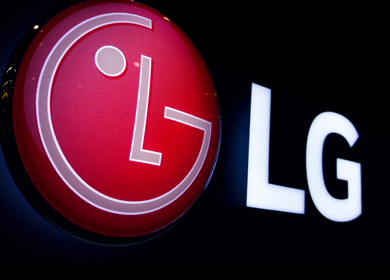Antitrust storm on Google: how will it shake up the advertising landscape?
Published: June 13, 2023

Google has been the world's most powerful player in the advertising technology space for years and years. Its advertising operations have been the most profitable, accounting for roughly 80% of the company's annual revenue. Its ad sales reached $225 billion in 2022.
While phenomenally growing on one end, the supremacy of Google in online advertising has been increasingly called into question in recent years. Complaints from competitors about its supposedly anti-competitive practises have resulted in antitrust inquiries on multiple continents.
And, now, According to Bloomberg, Google is facing an official antitrust issue from the European Union, which could result in new penalties and a strike against the advertising technology that drives the majority of its revenue.
The declaration of objections, which could be issued this week, will be the latest twist in a long-running story that has already resulted in three EU fines totalling over €8 billion.
Google declined to reply to a request for comment on the matter.
The penalties for infringements of antitrust under EU rules may exceed up to 10% of global sales, though penalties rarely reach that level, and companies have the capacity to represent themselves both before and after penalties are imposed.
To put it in detail, the European Commission launched its first investigation into Google's ad tech practises in 2021.
The open bidding programme by Google and Meta Platforms had initially been part of the investigation, but it was dropped in the last months of 2022. However, the probe was expanded after the Portuguese rivalry authority filed additional proof in September 2022.
It should be noted that the search engine behemoth is also facing another lawsuit in the United States for its actions.
What will its implications be for marketers and brands?
- Data protection laws such as the CCPA, GDPR, etc. get more stringent by the day.
- Given the rise of privacy concerns in the market, browsers such as Safari and Firefox have already blocked third-party tracking cookies, while Google recently made an announcement deprecating third-party cookies for 1% of Chrome users.
- As generative AI's popularity has exploded in recent months, the noise for regulation of its use across various industries is increasing.
That is, whatever the upcoming technology may be or how far it could reach, ensuring it is safely used without breaching customer data is critical. And, that can only be considered a real evolution and true progress.
In this regard, Google must keep its ad ecosystem clean, and there is no second opinion on that. For now, it is only a "wait and watch" scenario for marketers to see how Google defends itself from the imposed charges.
But if this saga turns out to be negative for Google, what will be its impact on brands and marketers who rely heavily on Alphabet’s platforms for their advertising purposes?
- Firstly, increased scrutiny of how Google manages user information and security concerns as a result of ongoing charges against the company may lead to stricter privacy regulations. If this occurs, it may have a direct effect on how marketers use consumer information for personalised marketing. As a result, changes in data collection practises and ad targeting options may arrive, which will impact the general efficacy of campaigns.
- At the end of the story, if Google's ad tech undergoes any regulatory changes, it could impact the cost of advertising on their platform. Which, in turn, may put advertisers in a position to spend more for the same number of ads or for the same audiences. This, indeed, would cause considerable changes in the digital ad market.
- As an impact of the changes in Google's ad tech practises, advertisers might be forced to consider broadening their advertising approaches and exploring different networks or ad tech providers. This could lead to increased competition and price fluctuations on other platforms.
- Because Google is such a dominant player in this space, any revisions to its ad technology could have a far-reaching impact on the whole digital advertising ecosystem. Marketers may end up reconsidering their entire advertising tactics, collaborations, and expenditures. They may also be required to make adjustments to new market conditions and investigate creative approaches that arise in the changing ad tech landscape.
Long story short, marketers cannot come to any conclusion right now without knowing how the tech giant is going to handle the imposed charges. However, it is a warning signal for brands and marketers that at any time they can be hit with bombs in the name of stringent measures and must brace themselves for the new game.










Be the first one to comment.